What is an Argumentative Essay?
An argumentative essay is a paper that gets the reader to recognize the author’s side of the argument as valid. The purpose of this specific essay is to pose a question and answer it with compelling evidence. At its core, this essay type works to champion a specific viewpoint. The key, however, is that the topic of the argumentative essay has multiple sides, which can be explained, weighed, and judged by relevant sources.
Check out our ultimate argumentative essay topics list!
This essay often explores common questions associated with any type of argument including:
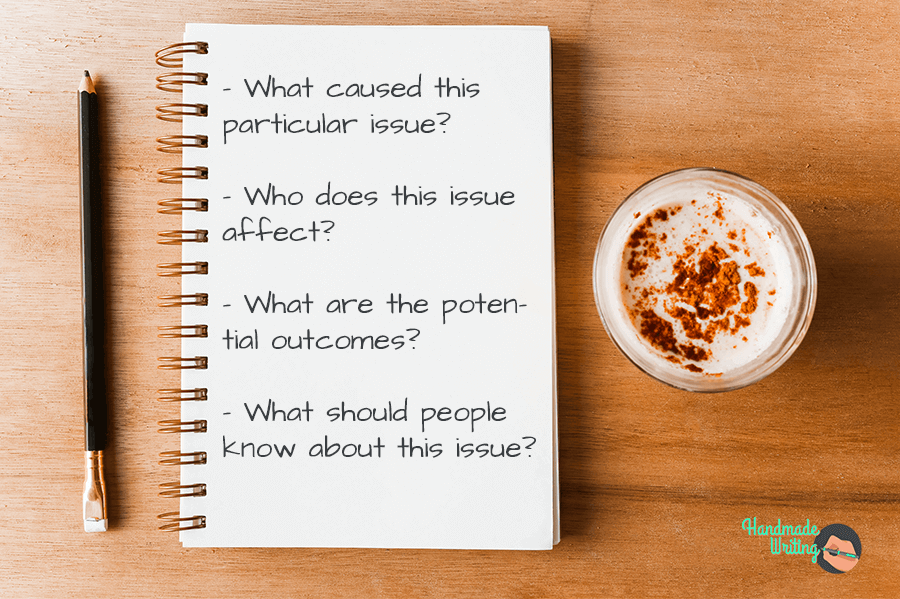
Argumentative VS Persuasive Essay
It’s important not to confuse argumentative essay with a persuasive essay – while they both seem to follow the same goal, their methods are slightly different. While the persuasive essay is here to convince the reader (to pick your side), the argumentative essay is here to present information that supports the claim.
In simple words, it explains why the author picked this side of the argument, and persuasive essay does its best to persuade the reader to agree with your point of view.
Now that we got this straight, let’s get right to our topic – how to write an argumentative essay. As you can easily recognize, it all starts with a proper argument. First, let’s define the types of argument available and strategies that you can follow.
Types of Argument
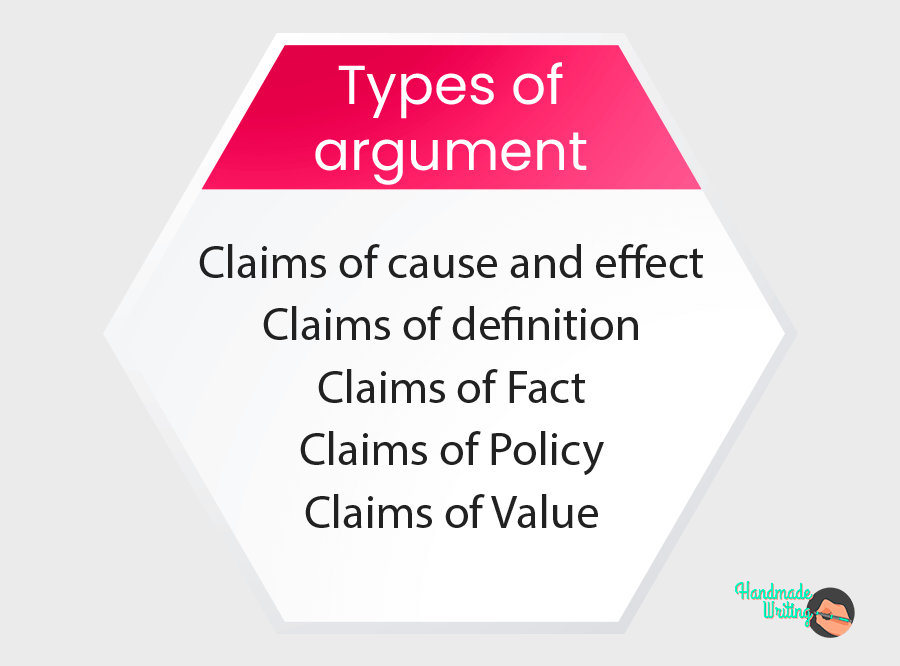
When delving into the types of argument, the vocabulary suddenly becomes quite “lawyerish”; and that makes sense since lawyers stake their whole livelihood on their ability to win arguments. So step into your lawyer shoes, and learn about the five kinds of arguments that you could explore in an argumentative paper:
Claims of cause and effect
This paper focuses on answering what caused the issue(s), and what the resulting effects have been.
Claims of definition
This paper explores a controversial interpretation of a particular definition; the paper delves into what the world really means and how it could be interpreted in different ways.
Claims of Fact
This argumentative paper examines whether a particular fact is accurate; it often looks at several sources reporting a fact and examines their veracity.
Claims of Policy
This is a favorite argumentative essay in government and sociology classes; this paper explores a particular policy, who it affects, and what (if anything) should be done about it.
Claims of Value
This essay identifies a particular value or belief and then examines how and why it is important to a particular cohort or a larger, general population.
The aim of argument, or of discussion, should not be victory, but progress. Joseph Joubert
Argument Strategies
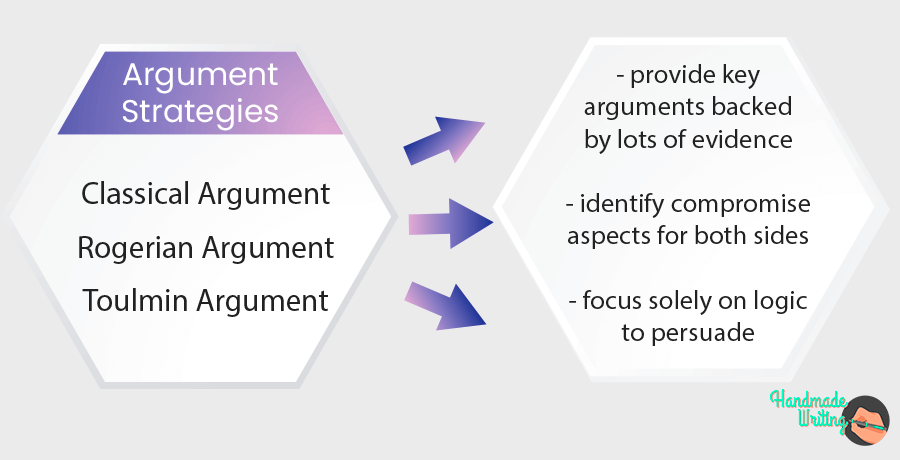
When mulling over how to approach your argumentative assignment, you should be aware that three main argument strategies exist regarding how exactly to argue an issue: classical, Rogerian, Toulmin.
Classical Argument
This argument structure dates back to the ancient Greeks and Romans. In this strategy, the arguer introduces the issue, provides context, clearly states their claim, provides key arguments backed by lots of evidence, and nullifies opposing arguments with valid data.
Rogerian Argument
Hate conflict? This may be the argumentative paper strategy for you. At its core, this strategy works to identify compromise aspects for both sides; this approach works to find commonality and an ultimate agreement between two sides rather than proclaiming a winner or loser. The focus in this argument is compromise and respect of all sides.
Toulmin Argument
Remember Spock? This is his type of strategy; the Toulmin approach focuses solely on logic to persuade the audience. It is heavy on data and often relies on qualities to narrow the focus of a claim and strengthen the writer’s stance. This approach also tends to rely on exceptions, which clearly set limits on the parameters of an argument, thus making a particular stance easier to agree with.
With that in mind, we can now organize our argument into the essay structure.
Have no time to write your essay? You can buy argumentative essay tasks at Handmade Writing. Our service is available 24/7.
Argumentative essay Example
Argumentative essay example
Organizing the Argumentative Essay Outline
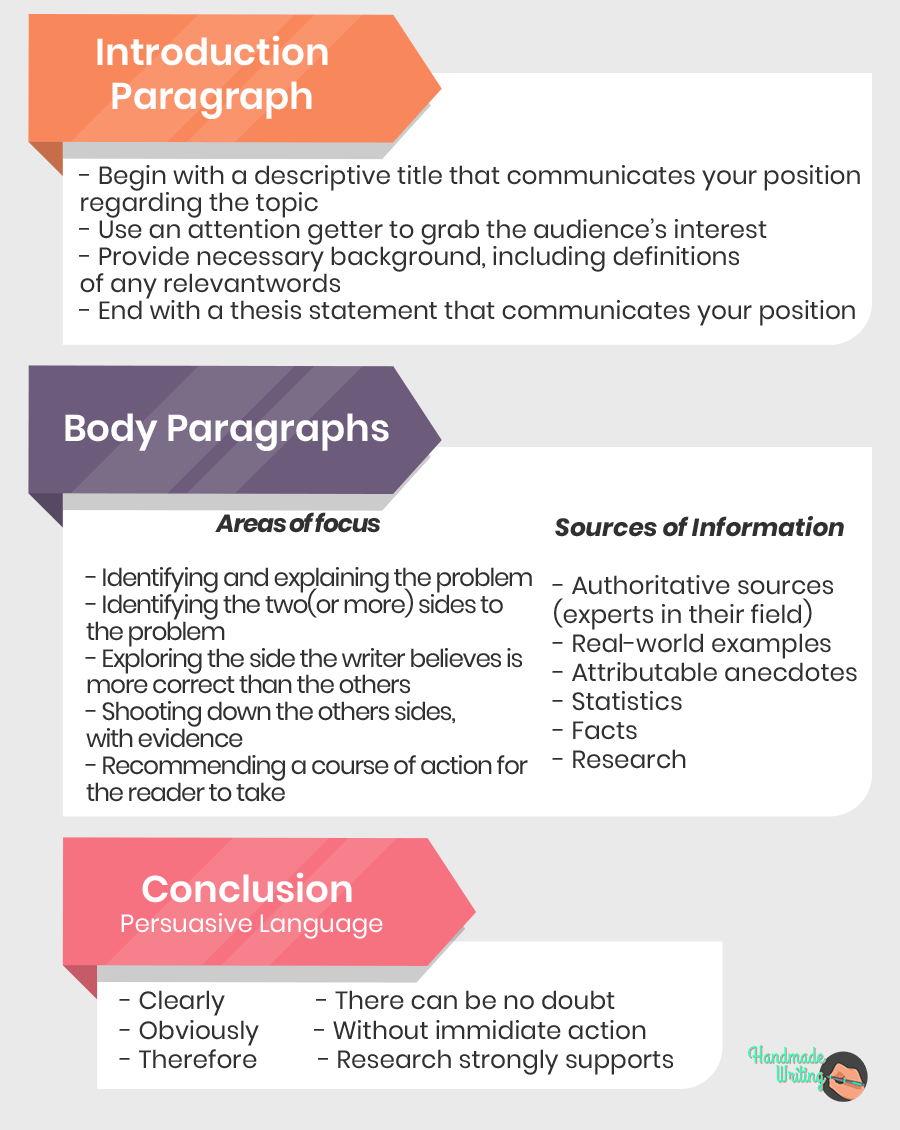
An argumentative essay follows the typical essay format: introduction, body paragraphs, and conclusion. However, the body paragraphs are structured a bit differently from other body paragraphs. Surely, not something you can see in a cause and effect essay outline.
While the introduction should still begin with an attention-grabbing sentence that catches the reader’s interest and compels him or her to continue reading and provides key background information, the following paragraphs focus on specific aspects of the argument.
Let’s begin with the introduction.
Related Post: How to write an Essay Introduction?
Introduction Paragraph
As its name suggests, this paragraph provides all the background information necessary for a reader unfamiliar with the argumentative essay topic to understand what it’s about. A solid introduction should:
- Begin with a descriptive title that communicates your position regarding the topic
- Use an attention grabber to catch the audience’s interest
- Rhetorical question
- Fact
- Statistic
- Quotation
- Personal anecdote
- Provide necessary background, including definitions of any relevant words
- End with a thesis statement that communicates your position
Stuck with your essay task? No more struggle! HandMadeWriting is the top essay writing service. Our online essay writer service not only guides you on writing papers, it can write a high-quality essay for you.
Body Paragraphs

Body paragraphs can range in size from six to fifteen or more sentences. The goal of these paragraphs is to support the thesis statement. Recommended areas of focus for the body paragraphs within an argumentative paper include:
- Identifying and explaining the problem
- Identifying the two (or more) sides to the problem
- Exploring the side the writer believes is more appropriate than the others
- Shooting down the other sides, with evidence
- Recommending a course of action for the reader
One important way how this essay differs from other kinds is its specific nature. At the end of reading such an essay, the audience should clearly understand the issue or controversy and have enough information to make an informed decision regarding the issue. But what compels an audience make an informed decision? Several things!
- Authoritative sources (experts in their field)
- Real-world examples
- Attributable anecdotes
- Statistics
- Facts
- Research
Conclusion
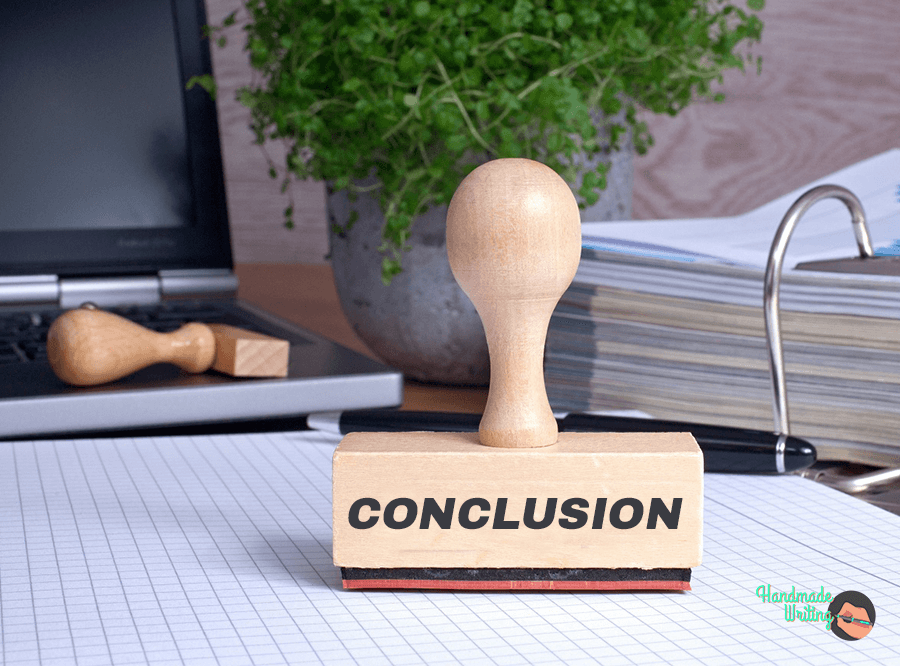
In this paragraph, often the shortest of all the paragraphs, the writer reviews his or her most compelling reasons for taking a particular stance on an issue. The persuasion should be strong here, and the writer should use combative language including examples such as:
- Clearly
- Obviously
- “then” statements
- Therefore
- There can be no doubt
- Without immediate action
- Research strongly supports
It is also appropriate to refute potential opposition in the conclusion. By stating the objections readers could have, and show why they should be dismissed; the conclusion resonates more strongly with the reader.
Check our guide if you have any other questions on academic paper writing!
Argumentative Essay Sample
Be sure to check the sample essay, completed by our writers. Use it as an example to write your own argumentative essay. Link: Argumentative essay on white rappers’ moral rights to perform.
Remember: the key to winning any argument should be reliable sources — the better, the more trustworthy your sources, the more likely the audience will consider a viewpoint different from their own.
And while you may feel a deep passion towards a particular topic, keep in mind that emotions can be messy; this essay should present all sides to the argument respectfully and with a clear intention to portray each of them fairly.
Let the data, statistics, and facts speak loudly and clearly for themselves. And don’t forget to use opinionated language — using such diction is a must in any strong argumentative writing!











